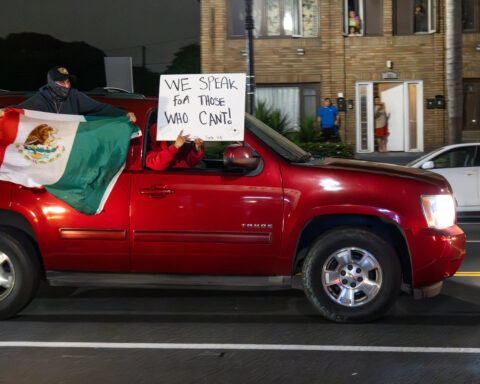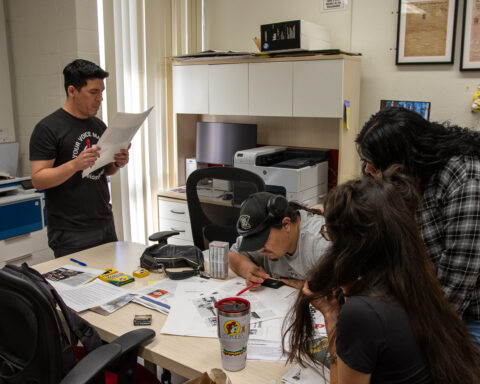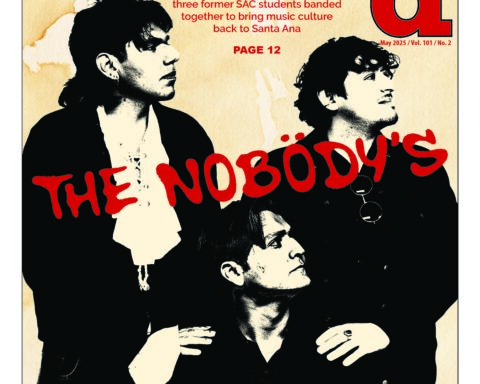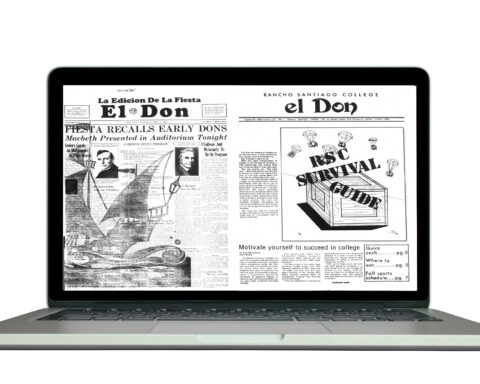Walking around campus with an empty plastic bottle container in hand, it dawns on you that the bins once labeled “recycle” are missing. Instead of tossing it in the trash, you decide to refill it from the nearest water fountain. Although reusing the plastic bottle by refilling it is environmentally friendly, you could be making a big mistake.
The reuse of plastic bottles is a potential health hazard because bisphenol-A or polyvinyl chloride could seep into the bottle’s contents. BPA is a building block of many polycarbonate plastic resins and has now been linked to hormone and gene disruption.
Once in the body BPA mimics estrogen, interfering with reproductive function and causing birth defects. It can also lead to cancer, insulin resistance and Type 2 diabetes.
Especially harmful to infants and children, BPA can affect the development of organ tissues and can delay sexual maturity.
“Research was showing more and more that it could lead to diabetes or obesity, early puberty, cancer … a whole range of problems,” said Erika Schreder, a senior scientist with the Seattle-based Washington Toxics Coalition in an interview with WHEC-TV in Rochester, N.Y. earlier this year.
In order for individuals to avoid exposure to BPA, the Environmental Working Group suggests looking for stainless steel bottles that do not have a plastic liner. Its website states: “We recommend avoiding the use of plastic containers to heat food in microwaves. Ceramic, glass, and other microwaveable dishware are good alternatives. Avoid using old and scratched plastic bottles.”
While the concern about BPA is garnering more attention, many people are still unaware of the risks involved with exposure to the chemical.
“I didn’t know that substances such as BPA were considered a health risk,” said Santa Ana College student Maria Contreras. “Next time I’m out shopping for household items I’ll be sure to keep that in mind.”
Containers labeled 2, 4 and 5 are considered safe reusable plastics. Plastics labeled number 7 should be avoided since they fall under the category of miscellaneous plastics and may contain traces of BPA. Among the bottles currently sold in campus vending machines, Pepsi bottles are labeled number 1.
Health advocates also recommend not reusing bottles made from plastic number 1. These include most disposable water, soda and juice bottles.
A bill recently proposed in California, AB 1319, would prohibit the manufacturing, selling, or distribution of any liquid, food, or beverage in a can or jar containing BPA at a level above 0.1 parts per billion if the contents are intended for consumption by infants or children three years of age or younger.
When it comes to the content of water bottles, the U.S Food and Drug Administration does not regulate about 60 percent of bottled water.
For the 30 to 40 percent it does regulate, the FDA only requires companies to test a sample once per week.
The FDA’s regulation of 80,000 chemicals in food has not been updated in 35 years.
WATER BASICS
ASSESS – Do you go through cases of water every month? Maybe it’s time to think about how much this costs.
RECYCLE – Take the bottles you have laying around to your local recycling center and trade them in for cash.
GO GREEN – Use the money you earn from recycling your old bottles and purchase a reusable bottle to use every day.
FILTER – Don’t like the taste of tapwater? Invest in a filter to keep your water tasting fresh.
NUMBERS GAME
7 – Bottles labeled with this number are considered a toxic hazard
60 – Percent of bottled drinking water that the FDA does not test
35 – Years since regulations for chemical use in water has been updated
CLEANER, GREENER ALTERNATIVES
- NALGENE – Avoid at all costs. Nalgene plastic bottles have been phased out of sporting goods retailers, including REI. Its hard plastic case is labeled 7.
- KLEEN KANTEEN – The American company makes stainless steel, BPA-free liquid containers. They come in different designs and sizes. The 18 oz. Classic costs about $17.
- The two-party system is failing us. - October 19, 2024
- Read our Fall 2023 Print: Vol. 100 No. 1 - October 23, 2023
- Santa Ana College Awarded State Department of Finance Grant - April 2, 2015











